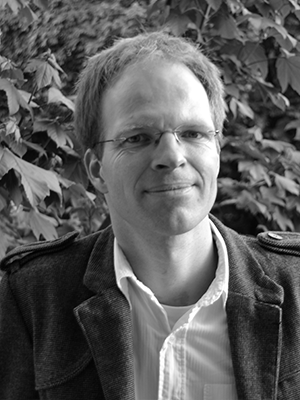ISRF Political Economy Fellow 2020
ISRF Political Economy Fellow 2020

Oane Visser is associate professor at the International Institute of Social Studies (ISS), in The Hague, part of Erasmus University Rotterdam, The Netherlands. He has been visiting researcher at University of Oxford, Toronto University, Cornell University and City University New York.
Building on his long-term research on agrifood issues, his latest research projects study digitalization in the sphere of agriculture, natural resources and global development more broadly. He is principal investigator of a Toyota Foundation funded international project on digital/smart farming, emerging farm data cooperatives and changing values regarding data in the EU, Russia and Australia. Another (ISS-funded) project examines the labour implications of new digital technologies in EU agriculture. Further, together with data scientists, he investigates the role of big data and AI in preventing or mitigating land grabs.
Visser also furthers his longer standing research on (super)large farms, farmland investment and financialisation (investigated amongst others within his European Research Council (ERC) project), increasingly seeking to integrate it with environmental history and the study of the impact of climate change. Another important line of research is around smallholders, alternative food networks and (‘quiet’) food sovereignty, in particular in post-socialist countries.
Visser has (co)-edited various special issues, and numerous book chapters and articles in journals like Globalizations, Journal of Rural Studies, European Journal of Sociology, Journal of Peasant Studies, Canadian Journal of Development Studies, Agriculture and Human Values. Visser is coordinator of the Eurasian Agrofood and Land initiative (EURAL), and an editor of Focaal- Journal of Global and Historical Anthropology.
‘Digital’ or ‘smart’ farming is heralded as the techno-fix to address the challenge of feeding the world in an era of climate change and shrinking per-capita resources. Cloud-connected combines, drones and other ‘smart’ devices are generating growing amounts of ‘big data’ on farming and farmers. Big Tech and Big Ag firms are building digitally locked farm equipment and enclosed data platforms, making farmers increasingly dependent on their digital (and industrial) products to run their farms (Carolan 2017; Visser and Sippel n.d.). Farmers risk being turn into the rural variant of disenfranchised Uber drivers and Deliveroo couriers. This project will investigate how farmers attempt to resist or mitigate rising data-driven corporate control, as well as explore farmers’ alternative data/technology arrangements and their potential for enabling a transformation towards a more equitable and sustainable agriculture.
My thesis is that farmer-activists are at the vanguard of emerging ‘data activist’ movements and practices. The observation that farmers are leading the US ’fair repair’ movement points in this direction (Rogers 2017). In order to ‘test’ this thesis, I will draw on the novel concept of ‘data activism’ (Milan & Velden 2016); that denotes civic activities that interrogate the dominant model of top-down (corporate or state driven) datafication, by developing alternative arrangements and imaginaries. This project will expand research on data activists like civic hackers and open source developers, from the predominantly urban sphere of highly educated, tech-savvy activists, to the countryside. Farmers, often more autodidact, have a long history of tinkering with technologies (Ploeg 2014). Now they have started to crack codes of farm equipment software, and build new data platforms. Theoretically combining social movement literature, critical agrarian studies, and new data (activism) studies, this interdisciplinary project examines four key cases of farmer-led data activism in the US and EU.
If you would like to contact any of our Fellows to discuss their ISRF-funded work, please contact Dr Lars Cornelissen (Academic Editor) in the first instance, at [email protected].